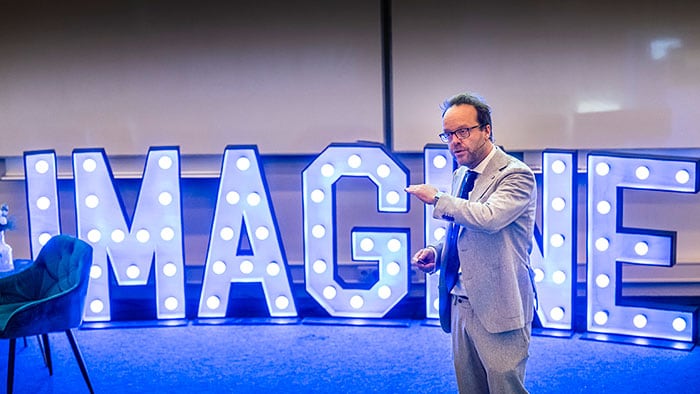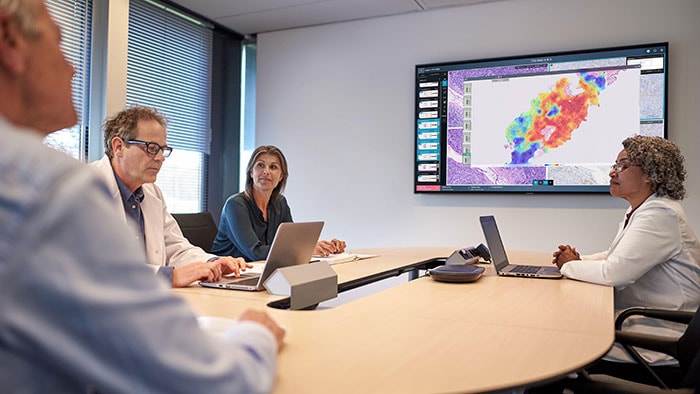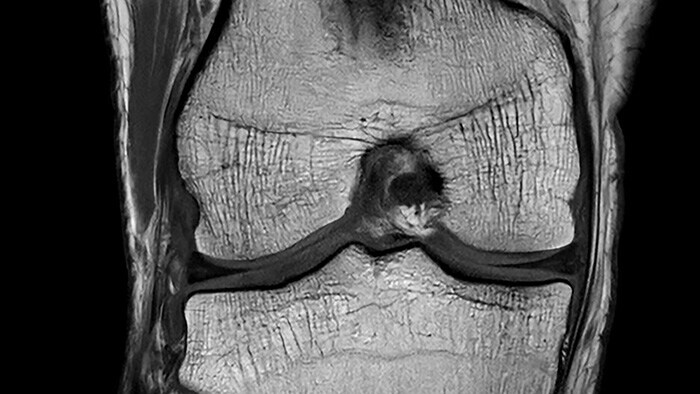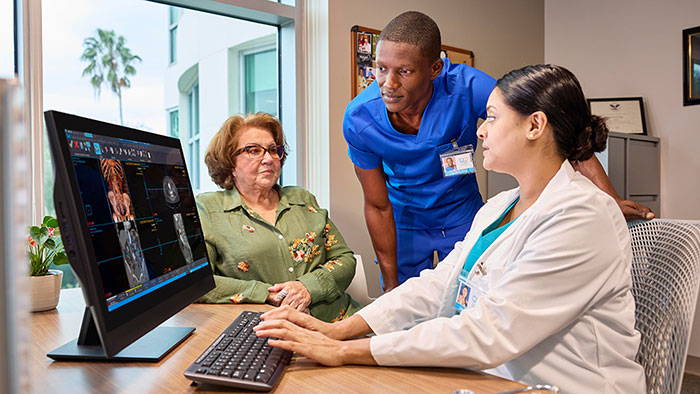Hoe kunstmatige intelligentie de grenzen van medische beeldvorming en interventies kan verleggen
mrt 26, 2024 | 2 minuten leestijd
“De voornaamste waarde van kunstmatige intelligentie in Image Guided Therapy (IGT) is dat het artsen kan helpen om verder te kijken dan normaal mogelijk is. Met de toepassing van AI-gebaseerde oplossingen kan meer informatie worden onttrokken uit medische beeldgegevens.” Dit zijn de woorden van Dr. Francesca Manni, klinisch wetenschapper bij Philips en gastonderzoeker aan de Technische Universiteit Eindhoven (TU/e). Ze sprak onlangs over het potentieel van AI in IGT tijdens Women in Data Science (WiDS) in Maastricht.
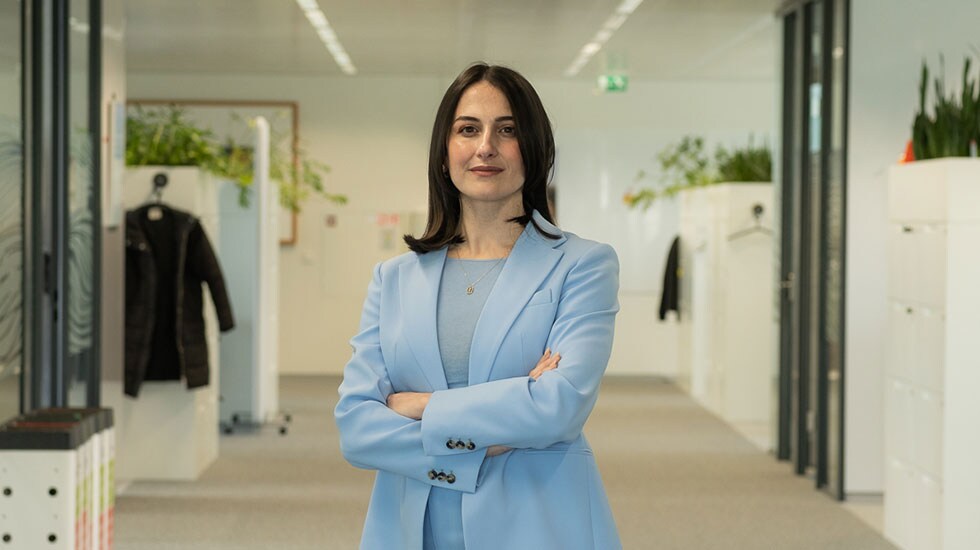
WiDS is een evenement dat jaarlijks plaatsvindt aan de Universiteit Maastricht. Dit jaar werden deelnemers getrakteerd op sessies over datawetenschap door vrouwen die in het veld werken. Manni, die al enkele jaren werkt aan de toepassing van kunstmatige intelligentie in medische beeldvorming bij Philips, richt zich voornamelijk op de toegevoegde waarde van AI in beeldgestuurde therapie, naast haar rol bij Philips met de Technische Universiteit Eindhoven.
Processen en workflows verbeteren
De AI-technologie is ontwikkeld om te leren van grote hoeveelheden gegevens. “Het is duidelijk dat we chirurgen beter kunnen ondersteunen door alle gegevensstromen te verwerken, zodat ze hun werk beter kunnen uitvoeren met deze inzichten. Bij Philips passen we AI toe om het besluitvormingsproces te verbeteren en de workflow te optimaliseren.”
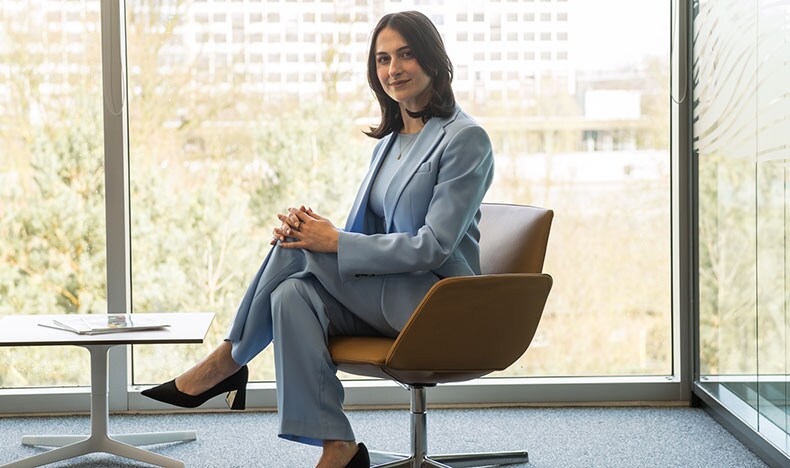
Grenzen verleggen
In haar TechTalk tijdens WiDS presenteerde ze verschillende studies die aantoonden dat AI artsen kon helpen betere diagnoses te stellen met een kleinere foutmarge. “AI kan medische professionals helpen complexe taken te automatiseren en verder te kijken dan wat het menselijk oog kan waarnemen”, zegt Manni. “In die zin kan AI de grenzen van medische beeldvorming en interventies verleggen.”
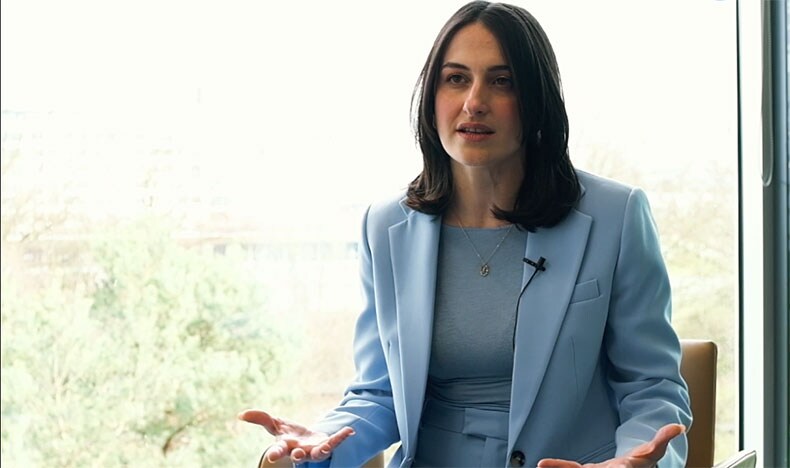
Samenwerken
Veel van de voorbeelden die ze presenteerde, bevinden zich nog in de onderzoeksfase. Effectieve inzet van AI in IGT vereist het gebruik van uitgebreidere datasets om van te leren. Manni: “Het vereist nauwe samenwerking met de gebruikers en het overwinnen van de bestaande uitdagingen om AI in de klinische praktijk te realiseren.” Daarom is meer onderzoek en innovatie nodig om het potentieel van AI in IGT volledig te benutten.
Doorbraakinnovaties
Bij Philips gelooft Manni dat ze in een goede positie is om deze veelbelovende toekomst vooruit te helpen. “We staan voor gebruiksgemak, efficiëntie en klinische excellentie om artsen te ondersteunen bij complexe procedures. Terwijl veel bedrijven bestaande algoritmen verbeteren om betere versies te creëren, gebruiken we bij Philips AI voor doorbraakinnovaties om onze klanten beter te ondersteunen.”
How artificial intelligence can help push the boundaries of medical imaging and interventions
“The main value of artificial intelligence in Image Guided Therapy (IGT) is that it can help doctors to look beyond what is normally possible. With the application of AI-based solutions, more information can be extracted from medical imaging data.” These are the words of Dr. Francesca Manni, Clinical Scientist at Philips and Guest Researcher at the Technical University of Eindhoven (TU/e). She recently spoke about the potential of AI in IGT at Women in Data Science (WiDS) in Maastricht.
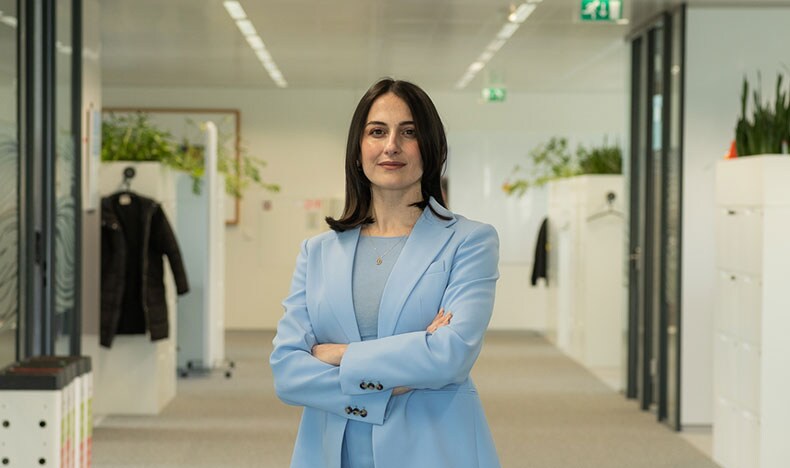
WiDS is an event that takes place annually at Maastricht University. This year, attendees were treated to sessions on data science by women who work in the field. Manni, who has been working on the application of artificial intelligence in medical imaging at Philips for several years, is mainly focused on the added value of AI in image-guided therapy, working beside her role at Philips with the Eindhoven University of Technolegy.
Improving processes and workflows
The AI technology has been developed to learn from large amounts of data. “It's clear that we can better support surgeons by processing all data streams, so that they can perform their work better with these insights. At Philips, we apply AI to improve the decision-making process and optimize the workflow.”

Pushing boundaries
In her TechTalk during WiDS, she presented various studies that showed AI could help doctors make better diagnoses with a smaller margin of error. "AI can help medical professionals automate complex tasks and look beyond what the human eye can perceive," says Manni. "In that sense, AI can push the boundaries of medical imaging and interventions."

Working together
Many of the examples she presented are still in the research phase. Effectively deploying AI in IGT requires the use of more extensive datasets to learn from. Manni: “It requires working closely with the users and overcome the existing challenges to realize AI in clinical pratica.” Therefore, more research and innovation is needed to fully unleash the potential of AI in IGT.
Breakthrough innovations
At Philips, Manni believes she is in a good position to help drive this promising future forward. "We stand for ease of use, efficiency and clinical excellence to support doctors in complex procedures. While many companies are improving existing algorithms to create better versions, at Philips, we use AI for breakthrough innovations to better support our customers."


